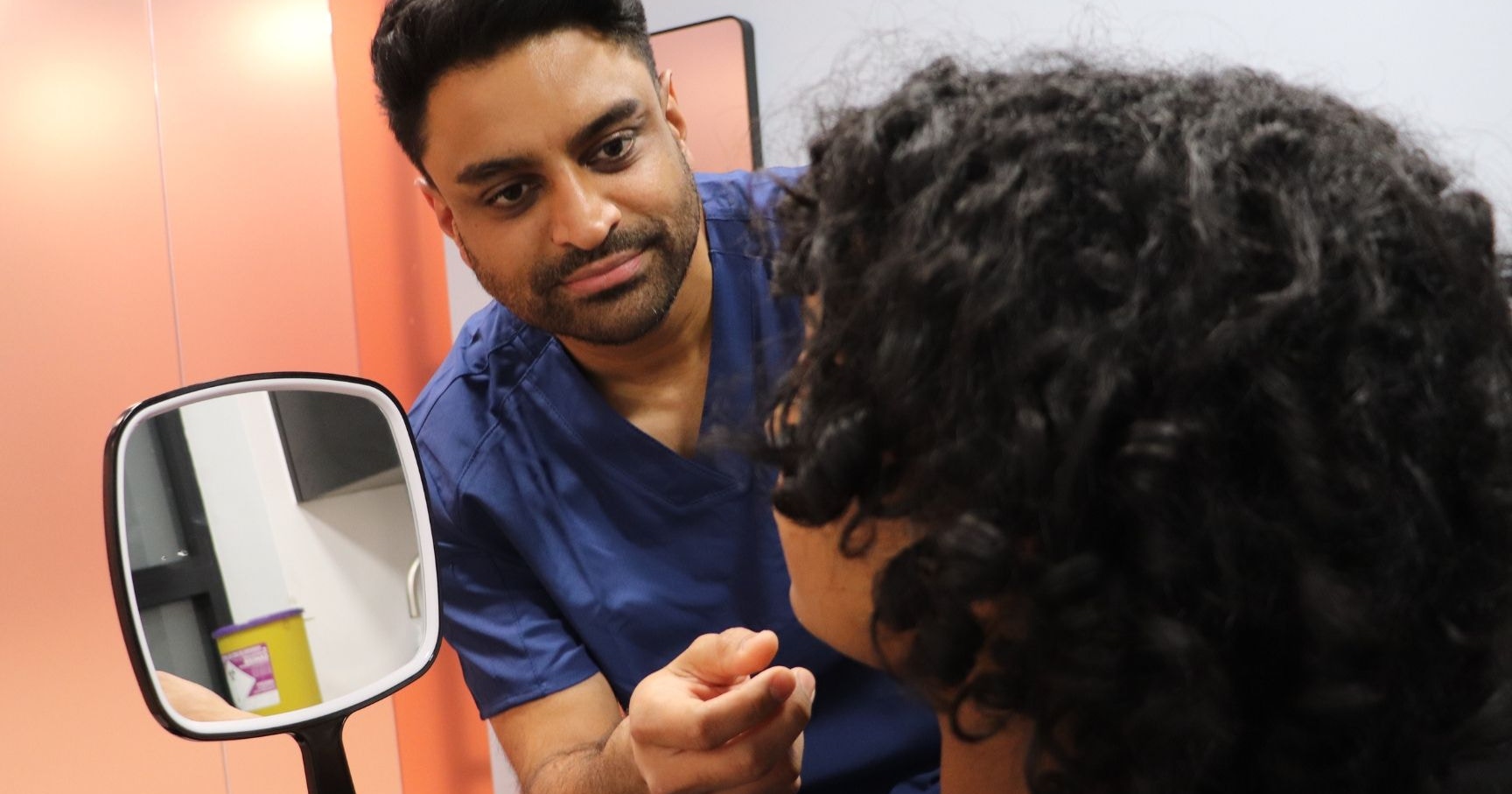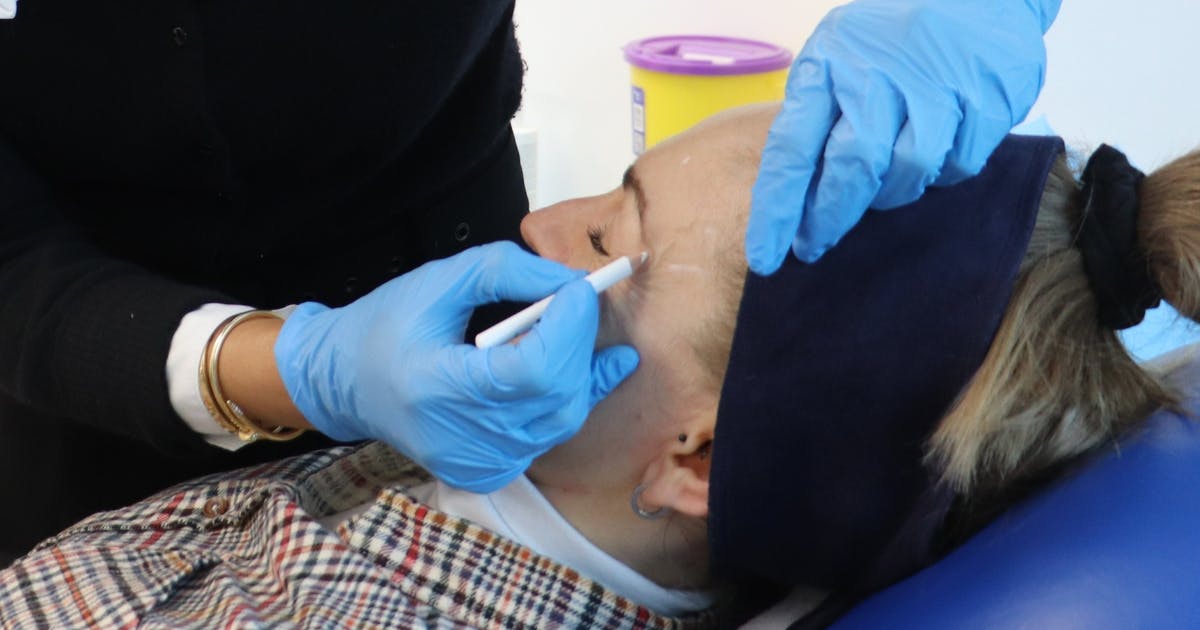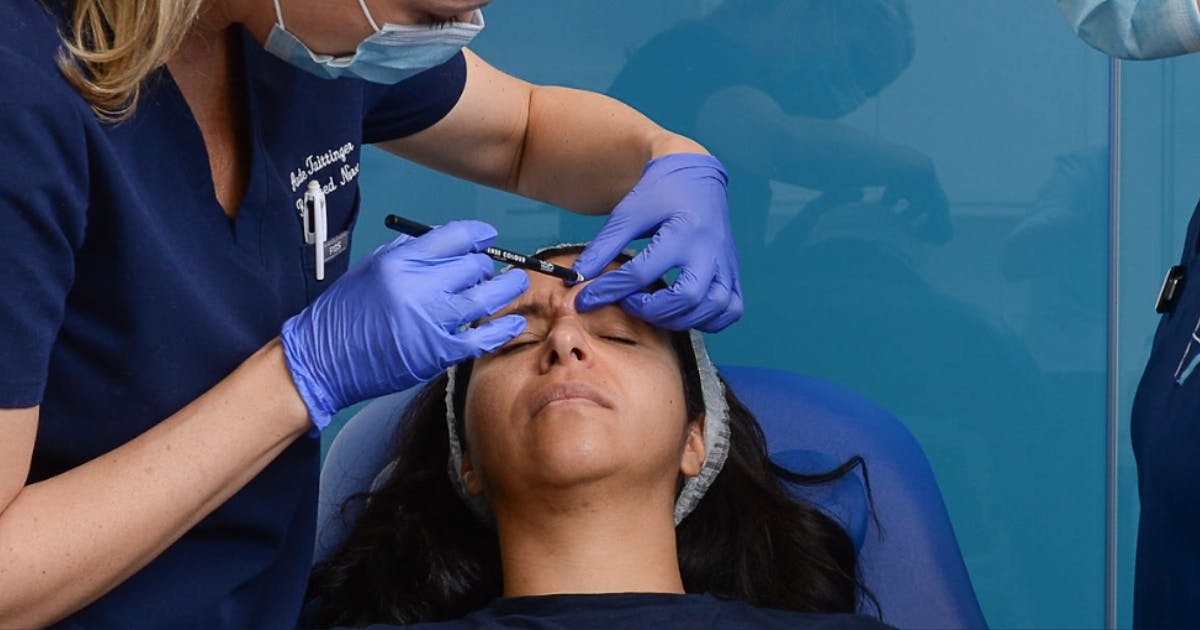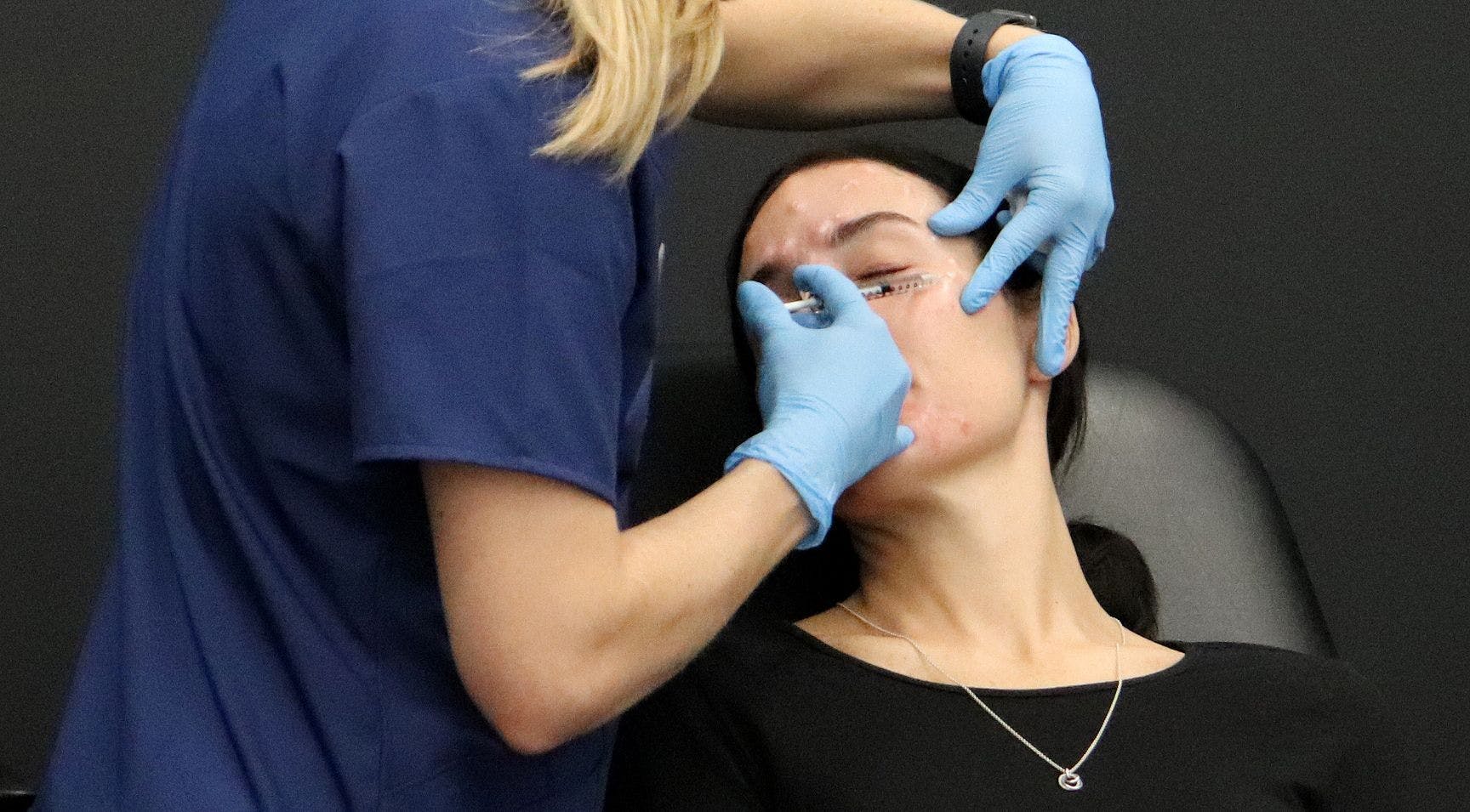When Should You Offer A Botox Top-Up?

When should you offer a botox top-up? You’ve treated your patient, they’ve gone away happy but when do you schedule a review appointment? Do they need one? What are the signs to look for and how much toxin should you use if they do need an additional dose..?
These are all frequently asked questions among new aesthetic practitioners who've completed their initial botox courses and started treating patients unsupervised.
We’ve put together this crib sheet on how to conduct an exemplary review appointment for your botulinum toxin patients. This includes the first rule of botox top-ups... don't call them a top-up!

This information is the work of today’s interviewee, clinical trainer, cosmetic nurse injector and prescriber, Shantel Noble of Noble Medical Aesthetics.
We put your queries to her and she kindly shared her wisdom to help you to not only improve your toxin treatments, but to also offer an outstanding service to your patients...
FIRST RULE OF BOTOX TOP-UPS
The first rule here is to ensure you are not offering a botox top-up before the two week mark. As we know, the botulinum toxin is still taking effect during this time so we need to allow enough time for the administered dose to reach its potential.
Patients should be aware of your policy before their initial treatment. Some practitioners also change the wording to avoid the use of ‘top-up’, which assumes more toxin is a given. They use the terms “review” or “adjustment” to more accurately reflect what the follow up appointment entails.
Not always needed
As our founder, CEO and aesthetics expert, Dr Tristan Mehta says, "When you first start to treat toxin patients, what we want to do is create a pathway. This allows us to make changes as we go along. We don't want to inject the highest possible dose, especially if it's the first time you've seen this patient for botox.
"We often use half the normal dose in the forehead, in the frontalis, at their first appointment. This allows us to then add in what we call an 'adjustment dose' at their review appointment within 2-4 weeks.
"I would recommend when you're discussing this with your patients that you don't call it an automatic botox top-up. This will give them the expectation that you're going to add more. In your clinical practice, you want to give yourself the opportunity to say, 'I don't think we want to inject any more' because it may not be needed and we don't want to cause the risks.
"Remember, with toxin we can always add more but we can't take it away."
Conducting a thorough follow up appointment and how to tell if you need to re-treat
The botox top-up assessment is based upon existing movement post-treatment.
If the glabella still dynamically pulls, creating a rhytid in the skin, I’ll re-treat the area. I’ll use a dose that’s dependent on the extent of this movement. If the movement is the same as it was upon first treating I’ll use a full dose; if this is minimal, however, obviously I’ll top-up with a smaller amount.
When it comes to the frontalis, I conduct my assessment in the same way. Often there can be one side or a small section that was missed with the initial treatment. In these instances this can be rectified by treating directly.
However, if the patient’s concern is tethering lines above the eyebrow, this cannot always be 'topped up'. The reason for this is, as we know, this then carries a risk of causing ptosis if we place our frontalis injections too low down. This should’ve been discussed during your initial patient consultation. Remember that informed consent must also be demonstrated at the review appointment to reiterate any risks of further treatment.
When should injectors conduct toxin review appointments?
I always encourage new practitioners to offer all toxin patients a review between weeks
2-4 post-treatment. This allows you to document the results of the dosing you initially gave them and record any areas that needed further treatment or tweaking. This approach helps to guide your dosing decisions upon their next full treatment in 3 months time.

What are some common mistakes new injectors make when it comes to botox top-ups?
Common mistakes new injectors make here include not following up with patients to understand their muscles and the results achieved.
Failing to offer a review appointment and to top-up botox where appropriate can also lead to dissatisfied patients who may not return and/or bad reviews. These outcomes are not great for anyone but especially not for new aesthetics practitioners who are just starting out!
Scheduling reviews offers further opportunities to build your patient relationships, not to mention presenting additional marketing opportunities. This could result in them providing word of mouth referrals where they appreciate your excellent customer service; it’s not simply about having the chance to sell them additional treatments or products.
Frequent errors new injectors tend to make also include under-treating areas, such as the frontalis, out of fear.
If a patient has no ptosis risk factors or history of previous ptosis and they would like a strong treatment outcome, it’s unlikely that using 10 units will achieve this. Under-dosing without a valid rationale can lead to poor patient outcomes. Getting this right comes with time and confidence but it’s worthwhile being aware of this potential issue from the outset.

Will I conduct toxin review appointments during my botox training?
You will not conduct any review appointments during the following botox courses:
Foundation Training in Botox and Dermal Fillers
Core Training in Botox and Dermal Fillers
It is not standard practice for you to see patients for top-ups during your Level 7 Diploma in Botox and Dermal Filler training course either. However, if you bring your own patients to treat, we would absolutely recommend you see them for a review appointment.
If you see them in your own time and decide they require re-treating, you may bring them back in to treat under supervision at your next toxin mentoring session. To arrange this, please co-ordinate with our Student Support team, who will be happy to assist you in expanding your learning in this way.
There are a number of advantages to bringing in your own patients to treat during your Level 7 Diploma mentoring sessions.
- Treat your first patients under expert supervision
- Follow up with your patients and start to build a rapport
- See their first treatment results
- Start your own patient database.
Your patient can book directly by calling on: 020 3884 3246. Simply specify to your patient that they will need to give your name, and their session date and time will be required when booking.
Furthermore, if you’d like to try injectables from both sides of the needle, Harley Academy Level 7 Diploma trainees are eligible for 50% off filler treatments at The Academy Clinic.
All information correct at the time of publishing
Download our full prospectus
Browse all our injectables, dermal fillers and cosmetic dermatology courses in one document
By submitting this form, you agree to receive marketing about our products, events, promotions and exclusive content. Consent is not a condition of purchase, and no purchase is necessary. Message frequency varies. View our Privacy Policy and Terms & Conditions
Attend our FREE open evening
If you're not sure which course is right for you, let us help
Join us online or in-person at our free open evening to learn more
Our Partners














STAY INFORMED
Sign up to receive industry news, careers advice, special offers and information on Harley Academy courses and services

